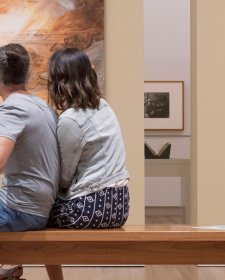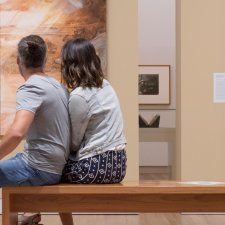I wrote in one of my poems – I think I’ve thrown the poem away but it was a good line – I wrote, ‘I feel that I should listen harder than I sing’, and that’s to do with passivity, with receptivity. Unless you can be passive, I don’t feel that you can be a great poet. I think the ability to see what’s happening and to hear what’s happening is probably more important to a poet than his ability to sing, his ability to actually write about.
I think the experience of experiencing, of noticing, of being aware – but not being blindly aware but being aware of things, and aware of people, aware of situations – that’s an important thing. So, this passivity helps me in what I’m doing now in a way that it helped me when I was in prison. Initially I was very unsympathetic to most of the prisoners because they were pretty wretched people but amongst them I found that they had aspects that were just as valuable to humanity as the people that I had idealised, poets. And at that time most of my heroes were dead and I think maybe that was a subconscious thing, it was quite safe to have dead heroes. But I tend to have heroes these days that are very much alive, and the more they disappoint me, the more exciting it gets. You can write them a letter and say, ‘You were my hero yesterday but you’ve upset me again’.
But I think the thing is that you shouldn’t be reassured by art, you shouldn’t be reassured by life. As soon as you are reassured by things, even if you are assured by them, that’s when you become smug, you become sort of settled in your ways. Now the thing is, you need a hero, you need a companion that will constantly change, that will change you and you can change with them. The thing is that to go to a painter that you like and to see him doing the same thing is reassuring but to see him do something different is doing you more good than harm, to be shaken by the fact that he is not constant. Because time is the only constant thing and to change is essentially what my poetry is about.













